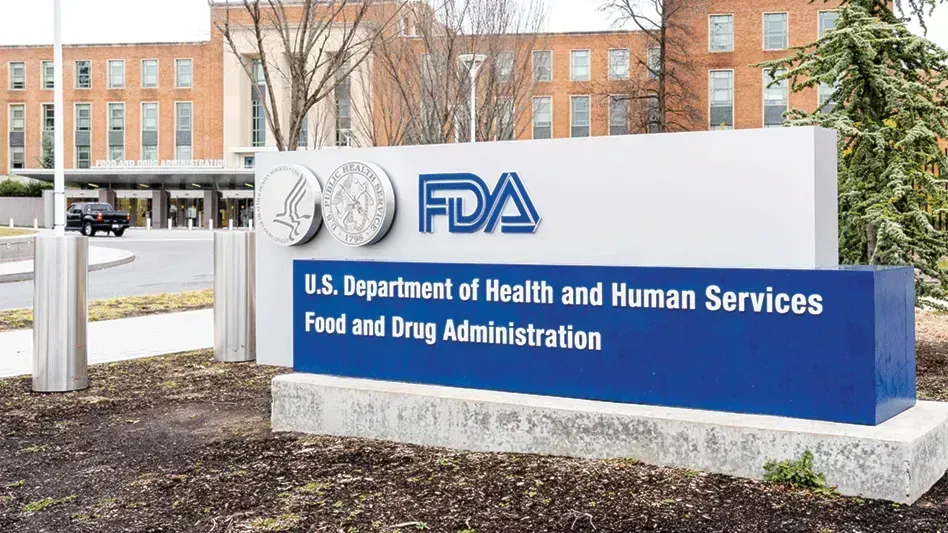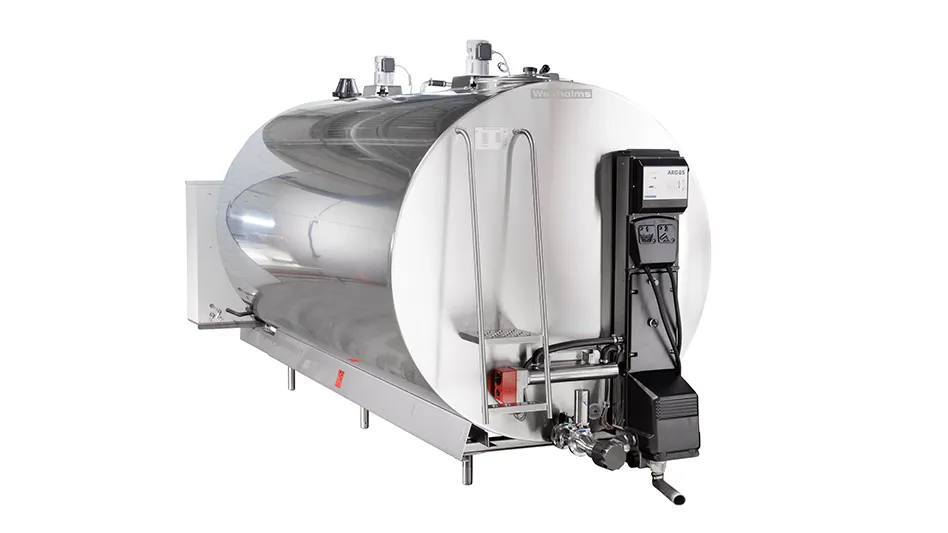
By Lisa Lupo
Handwashing. It’s simply a fact of life in food facilities, an activity that takes place multiple times a day, every time an employee enters a processing area, eats, uses the restroom, or conducts any other activity that requires that the hands be washed.
We learned to wash our hands as children — being reminded each time we used the bathroom, having mom do a hand check before we sat down to eat, and singing the alphabet song twice for timing. And anyone who works in any type of food establishment likely has similar reminders, checks, and timing requirements as an adult. QA magazine, itself, provides training for adults with an average of 22 online articles each year with some mention of handwashing.
TRUE OR FALSE? But, with all this, how much do you really know about the facts and myths of handwashing?
Can you answer all seven of the following True or False questions correctly — the first time?
- You should always wash your hands with hot water.
- You can never wash too long or scrub too hard.
- Letting your hands air dry is a good substitute for towels.
- You don’t have to dry your hands after washing.
- Always use antibacterial soap when washing hands.
- Hand sanitizers can replace handwashing.
- If you wear gloves, you don’t need to wash your hands.
1. True or False: You should always wash your hands with hot water.
FALSE.
“Most of us think hot water helps kill germs and bacteria on our hands, but the reality is, the water would have to be scalding hot to make that happen,” said Stephen Ashkin, president of The Ashkin Group and coauthor of The Business of Green Cleaning and Green Cleaning for Dummies. “In fact,” he added, “Hot water may work against us. Water that is too hot may cause us to remove our hands too quickly to wash properly. Further, researchers in Florida found that there is statistically little difference whether hands are washed in hot or cold water.”
“It’s absolutely false,” said Rutgers University Distinguished Professor and Food Science Extension Specialist Donald Schaffner. “We recently published some research that showed that water temperature did not matter. We studied three temperatures: 60°, 80°, and 100° and showed no difference between the three temperatures.” (The paper is available here.)

2. True or False. Letting your hands air dry is a good substitute for towels.
FALSE.
“Based on research conducted in my lab, we show that drying hands with paper towels results in the removal of additional bacteria, compared to when hands are air dried,” Schaffner said. Although his research did not include analysis of hot- or cool-air hand dryers, but was based on a person drying his or her hands naturally by holding them in the air, Ashkin noted that some studies indicate that hand dryers can spread microbes to nearby surfaces, increasing the chances of cross-contamination.
Additionally, Ashkin said, “Correctly using a hand towel to dry hands takes about 10 seconds. Studies indicate it can take as long as 45 seconds for some electric dryers to remove moisture from hands thoroughly, far too long for most people to wait.”
3. True or False: You can never wash too long or scrub too hard.
FALSE.
“Washing your hands too much can certainly lead to dermatitis and/or a loss of skin quality,” Schaffner said, noting that hands that are red, chapped, or have broken skin are problematic, and scrubbing too hard may lead to an exacerbation of these issues. As such, he said, “Hands that are damaged are more prone to bacterial infection. Infected hands, by definition contain bacteria, thus potentially increasing the risk of contamination.”
However, this is not to say that scrubbing or rubbing of the hands is unnecessary. Although much of the benefit of handwashing is from the chemical action of soap, aiding in the removal of dirt and bacteria from the hands, he said, “We do know from research done in my lab that there is certainly a physical aspect to handwashing. Washed hands that still contain some bacteria that are dried with a paper towel will result in additional bacterial removal and transfer to the paper towel.”
4. True or False: You don’t have to dry your hands after washing.
FALSE.
“While you certainly don’t have to do anything in this life except pay taxes, and eventually die, I would certainly recommend drying one’s hands after washing,” Schaffner said. The main reason for this is because moisture facilitates bacterial transfer, he said, explaining, “Let’s say I wash my hands, but I don’t remove some of the harmful bacteria that might be there from time to time. If my hands are wet, I am more likely to transfer those bacteria to other surfaces. By the same token if my hands contain no harmful bacteria, but I use wet hands to handle another surface (like the door to the restroom), that moisture on my hands will also facilitate the transfer of bacteria from the door handle onto my hands.”
“Some people wash their hands, shake them off, and then fly out the door,” Ashkin added, but it is easier for pathogens to collect on hands that are wet, and drying one’s hands also helps remove any remaining microbes.
5. True or False: Always use antibacterial soap when washing hands.
FALSE.
A 2007 study of triclosan, which was used in hand soap and is now banned in the U.S., showed that it did not significantly reduce the number of bacteria on hands, Ashkin said.
“Since then,” he added, “Other studies have come to similar conclusions about many other antibacterial hand soaps.”
IT’S QUESTIONABLE. In 2006 the FDA Center for Drug Evaluation and Research (CDER) concluded that some antibacterial agents had no benefit and posed some risk.
“I disagree with their decision,” Schaffner said. “We have published research — both laboratory-based, as well as meta-analyses of the literature — that shows a small but significant benefit to the use of these compounds.”
It also is important to note that while FDA recently banned the marketing of soaps with certain antimicrobial ingredients, it only prohibited the sale of soaps containing these agents to the consumer, he said. “Their use is still allowed in hospitals, and for the moment also allowed for employees that work in restaurants, grocery stores, and food processing plants.”
6. True or False. Hand sanitizers can replace handwashing.
TRUE.
After much debate, the U.S. healthcare industry made a decision to allow the use of hand sanitizers instead of a hand wash, Schaffner said, citing the benefits as being that the application of hand sanitizer requires less time and does not need a sink, and well-formulated hand sanitizers can include moisturizing agents to prevent hands from drying out.
“This decision has apparently improved compliance within healthcare settings, with a net benefit to patient public health,” he said, adding that it also helps to address the points raised in the first question regarding excess handwashing leading to red, chapped hands. “Well-formulated hand sanitizer works to control contamination on hands and mitigate hand irritation.”
FALSE.
That said, the FDA model food code, which is the basis for virtually all state and local food codes in the U.S. mandates that hand sanitizers can only be used in addition to a hand wash, Schaffner said. “In other words, in situations that require handwashing, I cannot substitute hand sanitizer, I can only wash my hands and then use a hand sanitizer.
“FDA has some reasons for this, however I disagree with some of them,” he said, citing research from his lab which shows that the application of hand sanitizers instead of a hand wash when hands have contacted hamburger patties inoculated with a marker microorganism, does result in a significant reduction in risk.
“Regulatory policy changes slowly, and hopefully, eventually FDA will come around to my way of thinking,” Schaffner said.
7. True or False: If you wear gloves, you don’t need to wash your hands.
FALSE.
References to gloves in the Food Code, Food Safety Modernization Act (FSMA) rules, and general guidance all show FDA’s thinking on gloves is that employees are to wash their hands before putting on gloves to work with food. “Even though bare hands should never contact exposed, ready-to-eat food, thorough handwashing is important in keeping gloves or other utensils from becoming vehicles for transferring microbes to the food.”
Additionally, a Rutgers Fact Sheet on gloves and handwashing co-authored by Schaffner states, “Anecdotal information shows that when people wear gloves, they are much less likely to wash their hands.” But after gloves are put on, bacteria on the hands increase quickly, so if a glove is punctured, that bacteria can pass to food.
Thus, if gloves are being worn, “it is important to remember to change them frequently, with proper handwashing between changes.”
HOW DID YOU DO? How would your employees do?
If you have any doubts as to whether your workers are correctly washing their hands and/or know all these facts themselves, use the quiz in your training program, and the expert comments to explain the science the behind it.
The author is Editor of QA. She can be reached at llupo@gie.net.

Explore the October 2017 Issue
Check out more from this issue and find you next story to read.
Latest from Quality Assurance & Food Safety
- FDA Publishes Landmark Final Rule to Enhance the Safety of Agricultural Water
- The Wendy's Company Reports 2023 Corporate Responsibility Progress
- Local Bounti Opens New Controlled Environment Agriculture Facility
- Tröegs Partners with Patagonia Provisions to Introduce Kernza Lager
- Neogen Launches New Molecular Method for Detection of Two Salmonella Serotypes
- Standard Meat Company Appoints Keith Blanks as Chief Commercial Officer
- USDA Finalizes Policy to Protect Consumers from Salmonella in Raw Breaded Stuffed Chicken Products
- Comedian Vanessa Bayer Explores the World of Dairy Farming in ‘Dairy Diaries’




